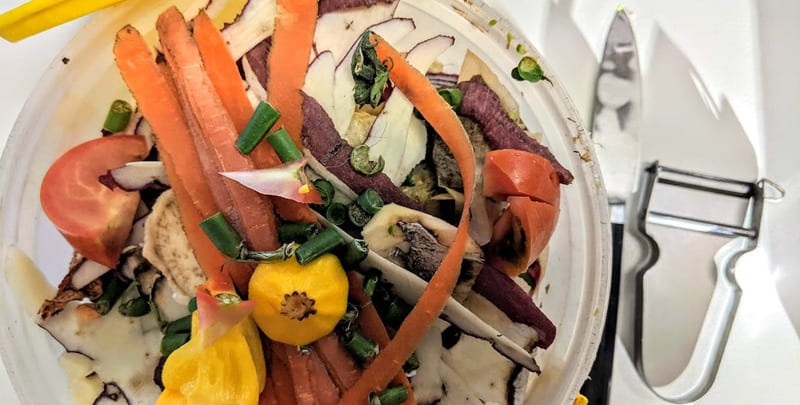
Will Coffee Grounds Clog My Drain?
Every morning, countless Australians brew their favourite blend, but few pause to consider the consequences of washing coffee grounds down the sink. Despite their seemingly harmless nature, used coffee grounds can pose a significant risk to your plumbing system, potentially leading to blocked drains and slow drainage.
This issue is compounded when other foods and substances, such as oils and fibrous items, join the mix in your sink drain.
Understanding how to handle coffee grounds and other kitchen waste properly is essential to maintaining clear pipes and avoiding costly drain cleaning. This article explores whether putting coffee grounds down the drain is a safe practice and offers better alternatives to keep your plumbing in top condition.
So … Do Coffee Grounds Block Drains?
“So, will coffee grounds clog my drain?” you ask. The simple answer is yes, coffee grounds can indeed clog your drain. When coffee grounds clump with other kitchen waste in sink drains, they form a dense, sticky mass. This messy blob can trap more debris, leading to the never-welcome plumbing issue that is the blocked drain.
Be Aware of the Misconceptions
Many households mistakenly believe that flushing ground coffee beans with boiling water or mixing them with drain-cleaning substances such as baking soda and vinegar, will prevent drain clogs. However, these methods are not foolproof.
Boiling water alone is not enough to clear the coffee grounds from the pipes. Over time, the repeated disposal of ground coffee beans in your sink can lead to accumulated build-up, resulting in a blocked drain that requires manual cleaning.

In short, we strongly advise against putting coffee grounds down the sink. We also steering clear of emptying these other potentially clogging items down the drain:
- Banana peels
- Cigarette butts
- Potato peels
- Fish skins
- Dairy products
- Any other starchy foods and heavy food waste
Even with ample water, these materials can stick to the pipes and exacerbate existing plumbing issues, potentially leading to costly repairs. For the health of your plumbing and to avoid unnecessary complications, it’s best to dispose of coffee grounds and similar waste responsibly.
The Role of Garbage Disposal Units
Garbage disposal units are popular fixtures in many kitchens, designed to grind food waste into small particles that can be washed away with wastewater. However, not all types of waste are suitable for these devices. Despite their organic nature, we advise against emptying coffee grounds down the drain. Though they might seem fine enough, the tendency for coffee grounds to clump together can cause them to accumulate in the disposal unit and the pipes, leading to clogs.
It’s important to use garbage disposals wisely by understanding what can and cannot be processed effectively. Responsible disposal of your coffee grounds ensures the longevity of both your garbage disposal unit and plumbing system.
Best Practices for Disposing of Coffee Grounds
Rather than risking clogged drains by flushing coffee grounds down the sink, there are several effective and environmentally friendly alternatives.
One of the most beneficial uses for spent coffee grounds is in the garden. Mix coffee grounds in with coconut oil and other food scraps to form a compost pile. The pile will decompose and enrich the soil with nitrogen, one of many essential nutrients for the growth of your plant life. This not only recycles the grounds but also benefits your garden plants without the need for chemical fertilisers.

Don’t Have A Garden? Try These Instead!
For those without a garden, you can use coffee grounds in various ways around the home. They are known to:
- remove fleas from pets
- neutralise odours
- act as a natural cleaning abrasive for greasy surfaces
Mixing coffee grounds with enough water creates a gentle scrub that won’t introduce harmful chemicals into your home environment.
Adopting these disposal methods prevents plumbing issues and promotes a more sustainable lifestyle. By using the grounds from your coffee maker in more purposeful ways – instead of dumping them down the sink drain – you reduce waste and effectively benefit from their natural properties.
Preventative Measures to Keep Your Drains Clear
To prevent plumbing issues and keep your drains flowing smoothly, it is essential to be mindful of what goes down them. Avoid putting coffee grounds as well as other potentially problematic substances like heavy metals and oils. Instead, opt for eco-friendly waste disposal methods or utilise a compost bin.
Regular maintenance is also crucial. Flush your drains periodically with boiling water or a mix of white vinegar and baking soda to dissolve any lingering residues. For tougher clogs, it may be necessary to manually clean the pipes or use a sink plunger, but preventing these blockages in the first place is always preferable.
Take Care to Avoid Clogging Your Drains!
It’s best to avoid disposing of coffee grounds down the sink as they can clump and cause plumbing issues. Choose more sustainable disposal methods to ensure your drains remain clear and functional.
Please note: This information is provided for advice purposes only. Regulations differ from state to state, so please consult your local authorities or an industry professional before proceeding with any work. See our Terms & Conditions here.
Published: 2024-05-07

















